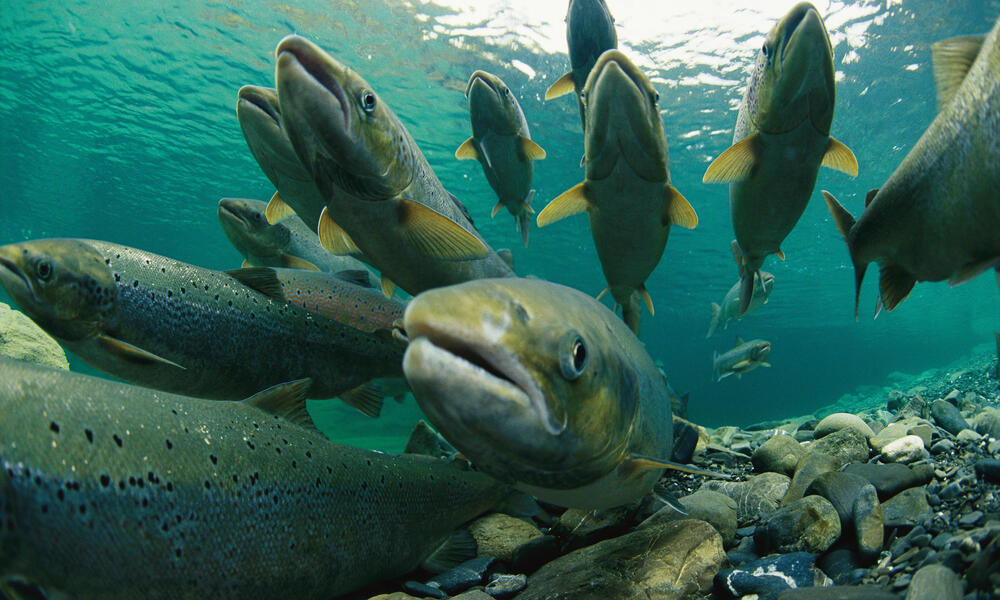Fishing has always been an integral part of human civilization, providing sustenance and livelihood for coastal communities worldwide declining. However, the rapid growth of the fishing industry in recent decades has put immense pressure on our oceans and marine ecosystems.
Unsustainable fishing practices worldwide have led to overfishing, habitat destruction and declining marine biodiversity. We must prioritize sustainable fishing to ensure the health and well-being of our oceans for future generations.
Mitigating Habitat Destruction through Sustainable Fishing
Habitat destruction is a severe threat to marine ecosystems. Unsustainable fishing practices, such as bottom trawling, can cause severe damage to sensitive habitats like coral reefs and seagrass beds.
Selective fishing gear like Melton Tackle with sustainable fishing equipment counts under sustainable fishing practices that help mitigate habitat destruction and preserve these valuable ecosystems.
By prioritizing sustainable fishing, we can protect critical habitats and maintain the ecological integrity of our oceans.
Preserving Marine Biodiversity through Sustainable Fishing
Marine biodiversity is essential for the overall health of our oceans. It encompasses many species, from microscopic plankton to large marine mammals. It has a very crucial role in maintaining the balance of marine ecosystems.
Practicing sustainable fishing, such as implementing catch limits and using selective fishing gear, help protect vulnerable species and prevent the collapse of marine food webs. By preserving marine biodiversity, we can ensure the long-term sustainability of our oceans.
Ensuring Food Security with Sustainable Fishing
With a growing global population, ensuring food security is a pressing concern. Oceans are a significant source of protein for people worldwide, particularly in developing countries.
Sustainable fishing practices help maintain fish stocks at a healthy level, ensuring a steady supply of fish for both local consumption and international trade. Promoting sustainable fishing promoting can contribute to global food security and alleviate hunger.
Protecting Endangered Species through Sustainable Fishing
Many marine species are currently facing the threat of extinction due to overfishing and extreme habitat destruction. Sustainable fishing practices aim to protect endangered species by implementing fishing quotas and establishing marine protected areas.
These measures help safeguard endangered species’ habitats and breeding grounds of endangered species, allowing their populations to recover and thrive. By prioritizing sustainable fishing, we can prevent the loss of valuable marine species.
Supporting Coastal Communities with Sustainable Fishing
Coastal communities heavily rely on fishing for their livelihoods. Sustainable fishing practices not only ensure the long-term availability of fish and support these communities’ economic well-being.
Promoting sustainable fishing can help create stable and sustainable income opportunities for fishermen and their families. This, in turn, contributes to poverty reduction and the overall development of coastal communities.
Strengthening Local Economies with Sustainable Fishing
Sustainable fishing practices have a positive impact on local economies. By maintaining healthy fish stocks, sustainable fishing ensures a consistent supply of fish for local markets and export.
This creates economic opportunities for fish processors, distributors and retailers, stimulating economic growth and job creation. Investing in sustainable fishing investing can strengthen local economies and promote sustainable development.
Promoting Sustainable Seafood Consumption for Health and Well-being
Consuming seafood is a culinary delight and beneficial for our health. Fish is a vital source of essential nutrients, including omega-3 fatty acids, vitamins and microminerals. However, unsustainable fishing practices can lead to the contamination of fish with pollutants and toxins.
Promoting sustainable seafood consumption can ensure people access safe and healthy seafood options. This contributes to the overall well-being of individuals and communities.
Preserving Marine Ecosystems through Sustainable Fishing Practices
Marine ecosystems are remarkably diverse and complex, providing numerous ecological services such as carbon sequestration and nutrient cycling. Unsustainable fishing practices, including bottom trawling and dynamite fishing, can cause significant damage to marine habitats and disrupt these vital ecosystem processes.
On the other hand, sustainable fishing practices minimize the impact on marine ecosystems, allowing them to function effectively and maintain their ecological balance.
Contributing to Climate Change Mitigation with Sustainable Fishing
Climate change is one of the most pressing challenges of our time that will only double in the future, with far-reaching impacts on marine ecosystems. Sustainable fishing practices can mitigate climate change by reducing greenhouse gas emissions.
For example, using more fuel-efficient fishing vessels and adopting sustainable fishing methods can minimize carbon footprints. We can positively contribute to global efforts to combat climate change by embracing sustainable fishing practices.
In Conclusion
Sustainable fishing is of utmost importance for the health and well-being of our oceans. Such fishing practices offer numerous benefits by preserving marine biodiversity, ensuring food security, protecting endangered species, supporting coastal communities and strengthening local economies.
Promoting sustainable seafood consumption, preserving marine ecosystems, mitigating habitat destruction and contributing to climate change mitigation are all crucial aspects of sustainable fishing. We must prioritize sustainable fishing to safeguard the future of our oceans and the countless livelihoods that depend on them.







Leave a Reply